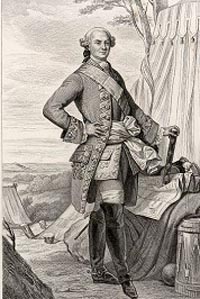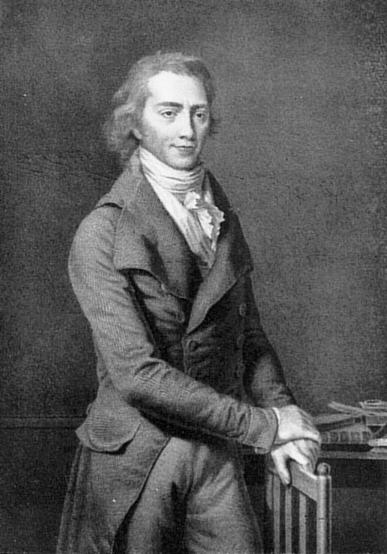|
Battle Of Langensalza (1761)
The Battle of Langensalza (10 February 1761) was an engagement between French forces and allied Prussian and Hanoverian forces during the Seven Years' War. It was fought near Langensalza in what is now eastern Germany Germany,, officially the Federal Republic of Germany, is a country in Central Europe. It is the second most populous country in Europe after Russia, and the most populous member state of the European Union. Germany is situated betwe .... An allied advance surprised the French, resulting in the capture of 2,000 French soldiers. References''Works of Thomas Carlyle: History of Frederick the Great'' Conflicts in 1761 Battles of the Seven Years' War Battles involving France Battles involving Great Britain Battles involving Prussia 1761 in the Holy Roman Empire Battles in Thuringia {{France-battle-stub ... [...More Info...] [...Related Items...] OR: [Wikipedia] [Google] [Baidu] |
Seven Years' War
The Seven Years' War (1756–1763) was a global conflict that involved most of the European Great Powers, and was fought primarily in Europe, the Americas, and Asia-Pacific. Other concurrent conflicts include the French and Indian War (1754–1763), the Carnatic Wars and the Anglo-Spanish War (1762–1763). The opposing alliances were led by Great Britain and France respectively, both seeking to establish global pre-eminence at the expense of the other. Along with Spain, France fought Britain both in Europe and overseas with land-based armies and naval forces, while Britain's ally Prussia sought territorial expansion in Europe and consolidation of its power. Long-standing colonial rivalries pitting Britain against France and Spain in North America and the West Indies were fought on a grand scale with consequential results. Prussia sought greater influence in the German states, while Austria wanted to regain Silesia, captured by Prussia in the previous war, and to contain Pruss ... [...More Info...] [...Related Items...] OR: [Wikipedia] [Google] [Baidu] |
Bad Langensalza
Bad Langensalza (; until 1956: Langensalza) is a spa town of 17,500 inhabitants in the Unstrut-Hainich district, Thuringia, central Germany. Geography Location Bad Langensalza is located in the Thuringian Basin, the fertile lowlands along the Unstrut river. The river Salza flows through the town and joins the Unstrut about east of the town. Bad Langensalza lies in an unwooded, intensively farmed and largely flat landscape that rises to the west to the Hainich, to the north to the ''Heilinger Höhen'' (Heilinger Heights) and to the southeast to the ''Fahner Höhen'' (Fahner Heights). Due to this location, the climate in Bad Langensalza is relatively mild and, with annual precipitation of about , very dry. The town itself is divided into the relatively large old town centre, which is bounded by the historical town wall, and several areas of urban expansion dating from 1850 onwards. Initially, the town expanded southwards and south-eastwards towards the railway station. This ... [...More Info...] [...Related Items...] OR: [Wikipedia] [Google] [Baidu] |
Germany
Germany,, officially the Federal Republic of Germany, is a country in Central Europe. It is the second most populous country in Europe after Russia, and the most populous member state of the European Union. Germany is situated between the Baltic and North seas to the north, and the Alps to the south; it covers an area of , with a population of almost 84 million within its 16 constituent states. Germany borders Denmark to the north, Poland and the Czech Republic to the east, Austria and Switzerland to the south, and France, Luxembourg, Belgium, and the Netherlands to the west. The nation's capital and most populous city is Berlin and its financial centre is Frankfurt; the largest urban area is the Ruhr. Various Germanic tribes have inhabited the northern parts of modern Germany since classical antiquity. A region named Germania was documented before AD 100. In 962, the Kingdom of Germany formed the bulk of the Holy Roman Empire. During the 16th ce ... [...More Info...] [...Related Items...] OR: [Wikipedia] [Google] [Baidu] |
Friedrich Von Spörcken
August Friedrich von SpörckenKlaus Mlynek: ''SPÖRCKEN, August Friedrich von'' (in german), in ''Hannoversches Biographisches Lexikon'', p. 342onlineby Google Books (1698–1776) was a Hanoverian soldier best known for his service in the Seven Years' War. He served as part of the Army of Observation between 1757–1762 leading the Hanoverian contingent at a number of major battles including Krefeld and Minden. Early life Spörcken was born on 28 August 1698. In 1715, he joined the Hanoverian army, he served as part of a volunteer force during the War of the Polish Succession. He later went on to serve as part of the Pragmatic Army during the War of the Austrian Succession. Seven Years' War When the Seven Years' War broke out, Spörcken was part of the Army of Observation established to defend Hanover and its neighbours from the French. Following the Battle of Hastenbeck, the Army retreated and was eventually forced to conclude the Convention of Klosterzeven, taking Hanover ou ... [...More Info...] [...Related Items...] OR: [Wikipedia] [Google] [Baidu] |
Jacques Philippe De Choiseul-Stainville
Jacques Philippe de Choiseul (6 September 1727, Lunéville - 2 June 1789, Strasbourg) was a French Marshal of France, general and nobleman. He became count and then in 1786 duke of Choiseul-Stainville (inheriting it from his elder brother Étienne François, duc de Choiseul) and baron of Dommanges. Life Jacques Philippe came from the House of Choiseul, a noble family dating back to the 12th century and originating in Choiseul in Haute-Marne. This famous family produced five marshals, one cardinal, two bishops and several statesmen. As a young man he served in the army of empress Maria Theresa and after becoming captain in a dragoon regiment he was made a commander of the Order of Saint Stephen, chamberlain to Francis I, Holy Roman Emperor, colonel of a regiment of light cavalry, major general and lieutenant field marshal in 1759. In 1760 he resigned his imperial titles and joined the French army, in which he was made lieutenant general. He was put under the command of the marsha ... [...More Info...] [...Related Items...] OR: [Wikipedia] [Google] [Baidu] |
Langensalza
Bad Langensalza (; until 1956: Langensalza) is a spa town of 17,500 inhabitants in the Unstrut-Hainich district, Thuringia, central Germany. Geography Location Bad Langensalza is located in the Thuringian Basin, the fertile lowlands along the Unstrut river. The river Salza flows through the town and joins the Unstrut about east of the town. Bad Langensalza lies in an unwooded, intensively farmed and largely flat landscape that rises to the west to the Hainich, to the north to the ''Heilinger Höhen'' (Heilinger Heights) and to the southeast to the ''Fahner Höhen'' (Fahner Heights). Due to this location, the climate in Bad Langensalza is relatively mild and, with annual precipitation of about , very dry. The town itself is divided into the relatively large old town centre, which is bounded by the historical town wall, and several areas of urban expansion dating from 1850 onwards. Initially, the town expanded southwards and south-eastwards towards the railway station. This ... [...More Info...] [...Related Items...] OR: [Wikipedia] [Google] [Baidu] |
Conflicts In 1761
Conflict may refer to: Arts, entertainment, and media Films * ''Conflict'' (1921 film), an American silent film directed by Stuart Paton * ''Conflict'' (1936 film), an American boxing film starring John Wayne * ''Conflict'' (1937 film), a Swedish drama film directed by Per-Axel Branner * ''Conflict'' (1938 film), a French drama film directed by Léonide Moguy * ''Conflict'' (1945 film), an American suspense film starring Humphrey Bogart * ''Catholics: A Fable'' (1973 film), or ''The Conflict'', a film starring Martin Sheen * ''Judith'' (1966 film) or ''Conflict'', a film starring Sophia Loren * ''Samar'' (1999 film) or ''Conflict'', a 1999 Indian film by Shyam Benegal Games * ''Conflict'' (series), a 2002–2008 series of war games for the PS2, Xbox, and PC * ''Conflict'' (video game), a 1989 Nintendo Entertainment System war game * '' Conflict: Middle East Political Simulator'', a 1990 strategy computer game Literature and periodicals * ''Conflict'' (novel) ... [...More Info...] [...Related Items...] OR: [Wikipedia] [Google] [Baidu] |
Battles Of The Seven Years' War
A battle is an occurrence of combat in warfare between opposing military units of any number or size. A war usually consists of multiple battles. In general, a battle is a military engagement that is well defined in duration, area, and force commitment. An engagement with only limited commitment between the forces and without decisive results is sometimes called a skirmish. The word "battle" can also be used infrequently to refer to an entire operational campaign, although this usage greatly diverges from its conventional or customary meaning. Generally, the word "battle" is used for such campaigns if referring to a protracted combat encounter in which either one or both of the combatants had the same methods, resources, and strategic objectives throughout the encounter. Some prominent examples of this would be the Battle of the Atlantic, Battle of Britain, and Battle of Stalingrad, all in World War II. Wars and military campaigns are guided by military strategy, whereas b ... [...More Info...] [...Related Items...] OR: [Wikipedia] [Google] [Baidu] |
Battles Involving France
A battle is an occurrence of combat in warfare between opposing military units of any number or size. A war usually consists of multiple battles. In general, a battle is a military engagement that is well defined in duration, area, and force commitment. An engagement with only limited commitment between the forces and without decisive results is sometimes called a skirmish. The word "battle" can also be used infrequently to refer to an entire operational campaign, although this usage greatly diverges from its conventional or customary meaning. Generally, the word "battle" is used for such campaigns if referring to a protracted combat encounter in which either one or both of the combatants had the same methods, resources, and strategic objectives throughout the encounter. Some prominent examples of this would be the Battle of the Atlantic, Battle of Britain, and Battle of Stalingrad, all in World War II. Wars and military campaigns are guided by military strategy, whereas bat ... [...More Info...] [...Related Items...] OR: [Wikipedia] [Google] [Baidu] |
Battles Involving Great Britain
A battle is an occurrence of combat in warfare between opposing military units of any number or size. A war usually consists of multiple battles. In general, a battle is a military engagement that is well defined in duration, area, and force commitment. An engagement with only limited commitment between the forces and without decisive results is sometimes called a skirmish. The word "battle" can also be used infrequently to refer to an entire operational campaign, although this usage greatly diverges from its conventional or customary meaning. Generally, the word "battle" is used for such campaigns if referring to a protracted combat encounter in which either one or both of the combatants had the same methods, resources, and strategic objectives throughout the encounter. Some prominent examples of this would be the Battle of the Atlantic, Battle of Britain, and Battle of Stalingrad, all in World War II. Wars and military campaigns are guided by military strategy, whereas bat ... [...More Info...] [...Related Items...] OR: [Wikipedia] [Google] [Baidu] |





